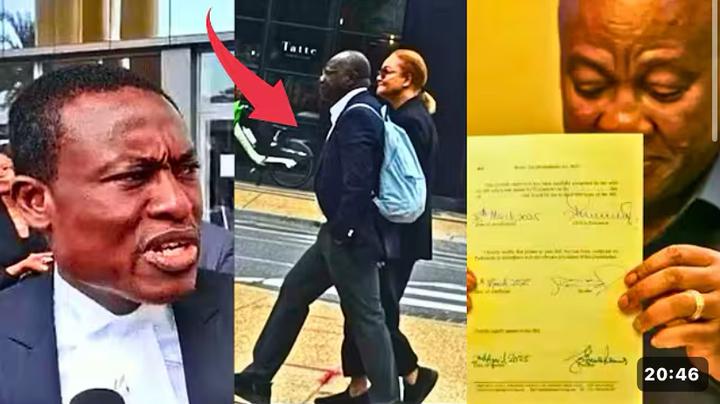A fresh wave of controversy has hit Ghana’s anti-corruption front following shocking reports that the Office of the Special Prosecutor (OSP) has been ordered to suspend its official operations and hand over its mandate to the National Intelligence Bureau (NIB). This dramatic development reportedly follows a new directive linked to an address delivered by former Finance Minister Ken Ofori-Atta.
The sudden move has raised eyebrows across the country, with legal experts, political watchers, and civil society organisations questioning both the timing and the motive behind the directive. According to sources, the OSP — which was established as an independent body to tackle high-level corruption — has now been instructed to temporarily cease its investigations and administrative duties, transferring sensitive case files and responsibilities to the NIB.
The issue reportedly came to the forefront after Ken Ofori-Atta, in his latest public address, strongly criticised the operations of the OSP. He allegedly accused the Special Prosecutor of using his office for political witch-hunts and argued that investigations into high-profile figures within the government had become a tool to create “needless embarrassment.” Not long after his statement, the directive to suspend the OSP’s work surfaced, sparking heated debates.
Critics have described the move as an unprecedented interference in Ghana’s fight against corruption, warning that it could cripple public trust in anti-corruption institutions. “Handing over corruption-related investigations to the NIB, which is primarily an intelligence agency, undermines the independence and transparency that the OSP was created to ensure,” one political analyst said.
Civil society groups have also expressed concern, noting that many ongoing investigations — including those involving powerful political and business figures — could be compromised. They argue that the OSP was established to remove political influence from corruption cases, but this latest directive suggests that entrenched interests are fighting back to protect themselves.
The opposition National Democratic Congress (NDC) has wasted no time in reacting, accusing the ruling government of deliberately dismantling accountability structures. According to NDC spokesmen, the suspension of the OSP’s powers is a clear attempt to shield corrupt officials from justice.
On the other hand, some ruling party loyalists insist the decision is necessary to “restructure” the anti-corruption drive and to prevent what they describe as “abuse of power” by the Special Prosecutor’s office. They argue that the NIB, with its intelligence-gathering capacity, is better positioned to handle sensitive corruption cases.
For ordinary Ghanaians, however, the development has deepened skepticism about the country’s commitment to fighting corruption. Many citizens believe the move could mark the beginning of the end for the OSP, an office that was once hailed as a bold step towards cleaning up governance in Ghana.
The coming days will be crucial as the directive is expected to trigger legal and political battles. Already, pressure is mounting on President Nana Addo Dankwa Akufo-Addo’s administration to clarify the basis of the order and to assure Ghanaians that justice will not be sacrificed on the altar of political convenience.
Source
